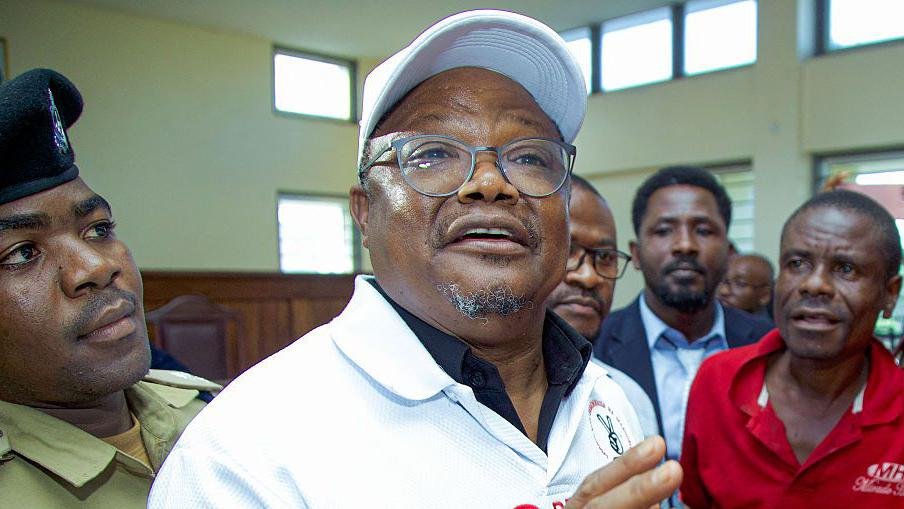A Tanzanian court has ordered that opposition figure Tundu Lissu be brought to court in person for his treason hearing next month, following protests over virtual proceedings and a hunger strike initiated by the accused.
The ruling, delivered on Tuesday by a magistrate court, directs prison authorities to ensure Lissu appears physically in court on May 19. The court further announced that the public will be permitted to attend the hearing, marking a departure from the previous session in April, when police barred public access.
This development comes amid escalating political tensions in Tanzania ahead of the country’s October 2025 general elections. Lissu, the vice chairman of the opposition Chadema party, was arrested on April 9 shortly after publicly calling for sweeping electoral reforms. He was subsequently charged with treason, a serious offense in Tanzania for which bail is not an option.
Lissu’s protest took on a dramatic turn last week when his legal team confirmed he had embarked on a hunger strike to demand that his case be heard in person rather than virtually.
Senior attorney Peter Kibatala, one of 31 lawyers representing Lissu, said they had faced obstacles in communicating with their client while he was in prison.“The last time we were forced to conduct our conversation in English,” Kibatala explained, underscoring the limitations placed on effective legal counsel.
Lissu’s arrest, along with the temporary detention of Chadema officials last month as they attempted to attend his court hearing, has renewed concerns about political repression in the East African nation. Though those officials were released without charge, human rights groups and international observers have increasingly criticized what they describe as President Samia Suluhu Hassan’s heavy-handed tactics toward the opposition — a claim the government continues to deny.
The upcoming in-person hearing will be Lissu’s first court appearance since his arrest. His opposition to virtual proceedings reflects a broader concern about transparency and due process in politically sensitive cases.
Calls for Electoral Reforms
The backdrop to these events is a brewing standoff over electoral reforms. Lissu and his party have launched a bold campaign to overhaul Tanzania’s political landscape, demanding constitutional changes they argue are critical to restoring democracy.
Lissu is calling for an “independent electoral commission free from government influence.” Chadema has refused to participate in the 2025 elections unless these changes are enacted, describing the current electoral system as a “slaughterhouse” for opposition voices.
Their proposed reforms include amending the constitution to ensure impartial voter registration, candidate nominations, and vote counting. Lissu is also pushing to reverse the legal burden of proof in electoral disputes, requiring the electoral commission, not petitioners, to prove the legitimacy of election results. Other demands involve limiting the role of security forces during elections and instituting strict ethical standards for political campaigns.
This campaign follows a controversial local election in November 2024, in which Chadema alleges thousands of its candidates were blocked from contesting. The ruling Chama Cha Mapinduzi (CCM) party won 98% of the available seats. Although President Hassan has since rebranded the electoral body as “independent,” Lissu and his supporters view this as mere window dressing.

The court’s order to present Lissu in person may offer a short-term reprieve in a case that continues to generate international scrutiny. The International Democracy Union has labeled Lissu’s treason charges as politically motivated, amplifying fears of a return to authoritarian-style governance.
These developments also echo deeper concerns about the legacy of former President John Magufuli, under whose administration democratic norms deteriorated sharply. Analysts warn that without meaningful reforms, Tanzania risks further democratic erosion, despite promises of change from the current leadership.
As the May hearing approaches, the spotlight will remain on both the courtroom and the larger battle for political transformation in Tanzania. For now, Lissu’s hunger strike and courtroom return have reignited a national debate over justice, democracy, and the future of electoral integrity.























